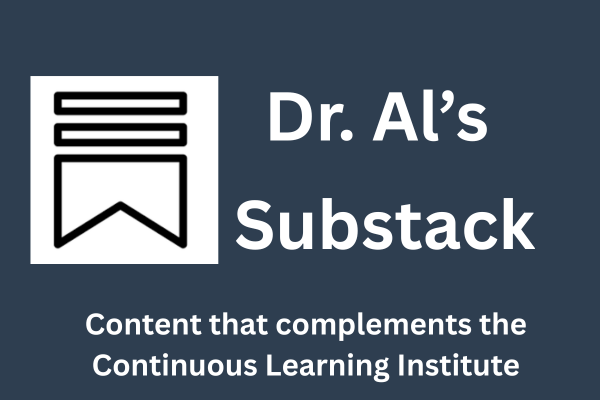Mental Health Crisis & Vaccine Clarity with Dr. Albert Chang

LISTEN TO THE EPISODE:
Learn how campuses can prepare for the mental health crisis and learn about vaccine clarity.
June 2, 2021
In this episode, I interview Albert Chang, MD/MPH, University of California, Irvine, Medical Director for Student Health.
(Scroll down to access the transcript.)
We discuss the following topics:
9:27:11: What institutions can learn from UCI's trifecta of mental health support:
- Student Health Center
- Counseling Center
- Center for Student Wellness and Health Promotion
Note: While not all institutions can invest and/or have the capacity to implement what UCI offers, colleges can take some of the ideas and modify them for their institutional context.
16:42:09: Ideas for individuals willing to seek mental health help on their own.
22:58:18: Campuses need a proactive strategy as they gradually return to in-person operations:
- Faculty embedding mental health information into the syllabus.
- Highlighting mental health at orientations.
- Tactfully asking questions to get a sense of an individual's mental well-being, AND already knowing what resources are available to direct them to is critical.
- Integration, collaboration, and communication among campus services is critical (avoid highly siloed services).
35:40:02: Vaccine clarity:
- The vaccinated can still contract Covid. They may not land at the hospital, but they can still get extremely ill, especially the immune compromised (who might actually need to be hospitalized).
- From CDC guidelines to local-level guidelines: the process of guideline interpretation and why the messaging is confusing for the public. In short, follow the local guidelines.
- Be aware where potential exposure resides.
- The game changer: Covid treatment.
- Pharmaceutical companies: They've had lots to gain financially, but everything to lose if they had cut corners and compromised quality measures.
- Current data shows the three vaccines are holding up against all current variants, but it's early in the game. It's only been a year and it can vary by region. Locality matters.
Select Dr. Chang quotes:
"We have to make mental health and behavioral health support and services easily digestible, easily accepted, avoiding the stigma where we can; educating and directing support."
"We have discussions and orientations with our students on multiple levels. But it's overwhelming. There's a barrage of information. But when there's a theme [emphasis added] of support and there's access to resources, and avenues of individuals that help out--that's the key."
"The stress and challenges for a student population echoes true for campus employees as well, sometimes even more so. Students are relatively short-term in their college experience. But you can be in a work environment that is challenging for decades and really not getting out of it. We're focusing on the student experience, but I feel the resources, the communication, and the proactive engagement needs to happen for faculty and staff members as well. And it all comes from leadership [emphasis added]. I believe that leaders that do see this as a priority, that are comfortable being transparent, that realize that we cannot do everything, but the importance of doing something, that we can promote the communication, we can promote the focus on programs, that we can get feedback from what's working and staying on top of it. Because our society hinges on the mental health of all of our citizens. And if we start falling apart, especially at the campus, if we see that the challenges start to affect day-to-day performance and even just students staying enrolled, it's going to have a larger impact. It's our obligation and opportunity to do something about it sooner than later."
"Vaccines make sense, but with variants, with mutations, with different ranges of what can happen with potential waning immunity, we will most likely need Covid booster shots. I'm asking our Covid experts about this all the time so that I have a schedule in my mind for our students when we might want to to have them all come in. Is it a year out? Is it two years out? The data will tell us."
"Sometimes you need this common enemy [e.g, Covid] to bring ourselves together. We've been able to work with housing, work with food service, work with our faculty partners to do what's right. Sometimes you have to put some of the egos to the side and look at your own students, your staff, your family, and your personal health, and get to a point that you can do what's right."
About Dr. Albert Chang
Albert Chang MD/MPH, is Medical Director for Student Health at the University of California, Irvine, where he is responsible for helping to maintain health in student and staff populations, prevent illness and injury, and promote healthy living for the people of the community.
Prior to UCI, he was a pediatrician and patient advocate for nearly 20 years, including serving as the Regional Medical Director of AltaMed Health Services of community clinics in Orange County. As the Regional Medical Director at AltaMed, Dr. Chang was responsible for providing the clinical oversight for 7 primary care clinics, managing the Medical Directors at each site, advocating for the needs of over 60 medical providers, and supporting the delivery of care to over 65,000 patient lives. As an active member of the Medical Leadership Council, and serving as the chair for many committees and project teams, he has worked very closely with the Clinical Operations, Quality Department, Medical Management, Health Education and Marketing teams, to ensure the success of many programs and projects within the Orange County clinics.
He obtained his MD/MPH combined degree from the Boston University School of Medicine, trained in Pediatrics at the Children’s Hospital of Orange County (CHOC), and completed a Preventive Medicine Residency at UCLA.
About Dr. Al Solano
Al is Founder & Coach at the Continuous Learning Institute. A big believer in kindness, he helps institutions of higher education to plan and implement homegrown practices that get results for students by coaching them through a process based on what he calls the "Three Cs": Clarity, Coherence, Consensus. In addition, his bite-sized, practitioner-based articles on student success strategies, institutional planning & implementation, and educational leadership are implemented at institutions across the country. He has worked directly with over 50 colleges and universities and has trained well over 5,000 educators. He has coached colleges for over a decade, worked at two community colleges, and began his education career in K12. He earned a doctorate in education from UCLA, and is a proud community college student who transferred to Cornell University.







